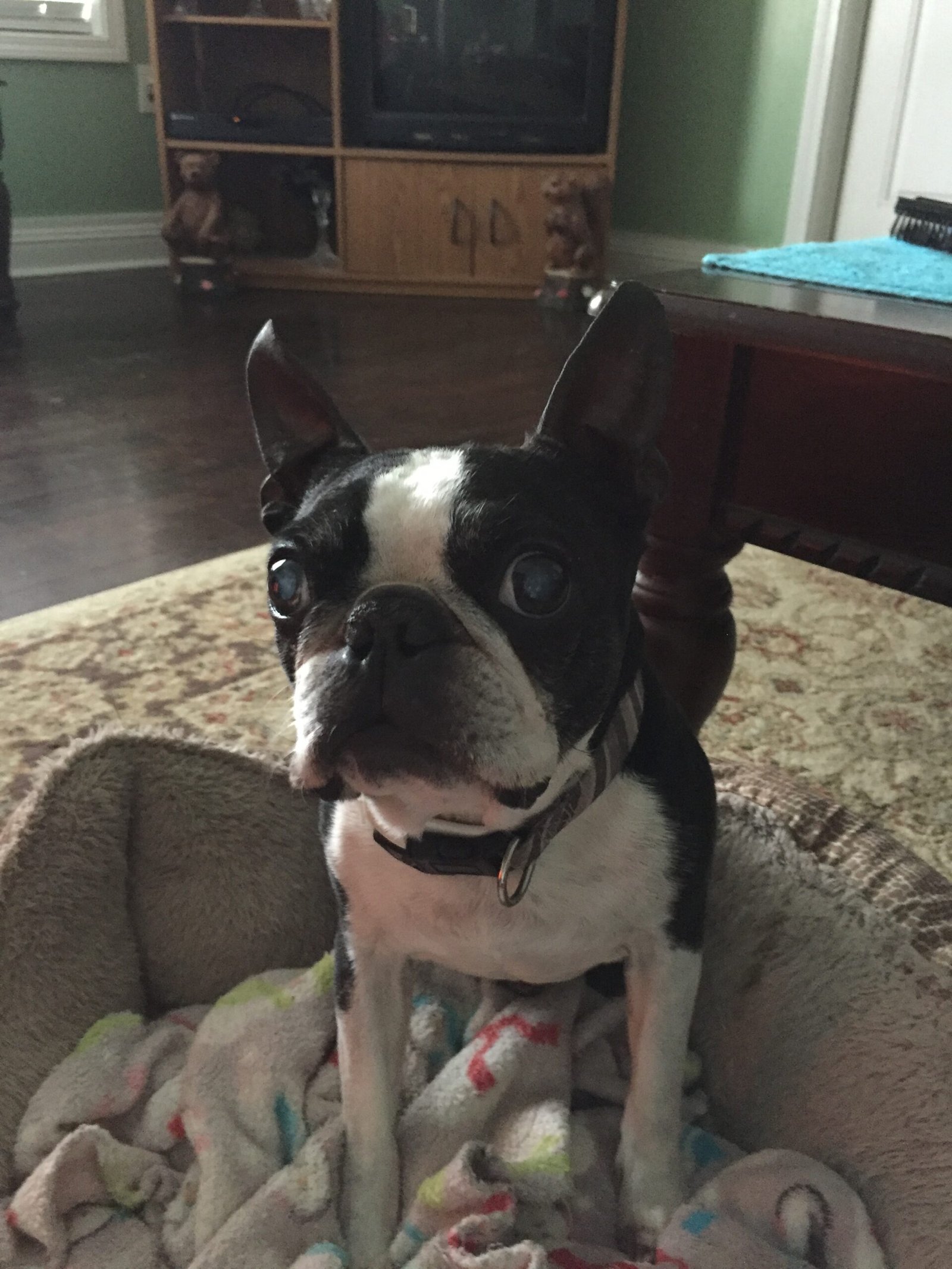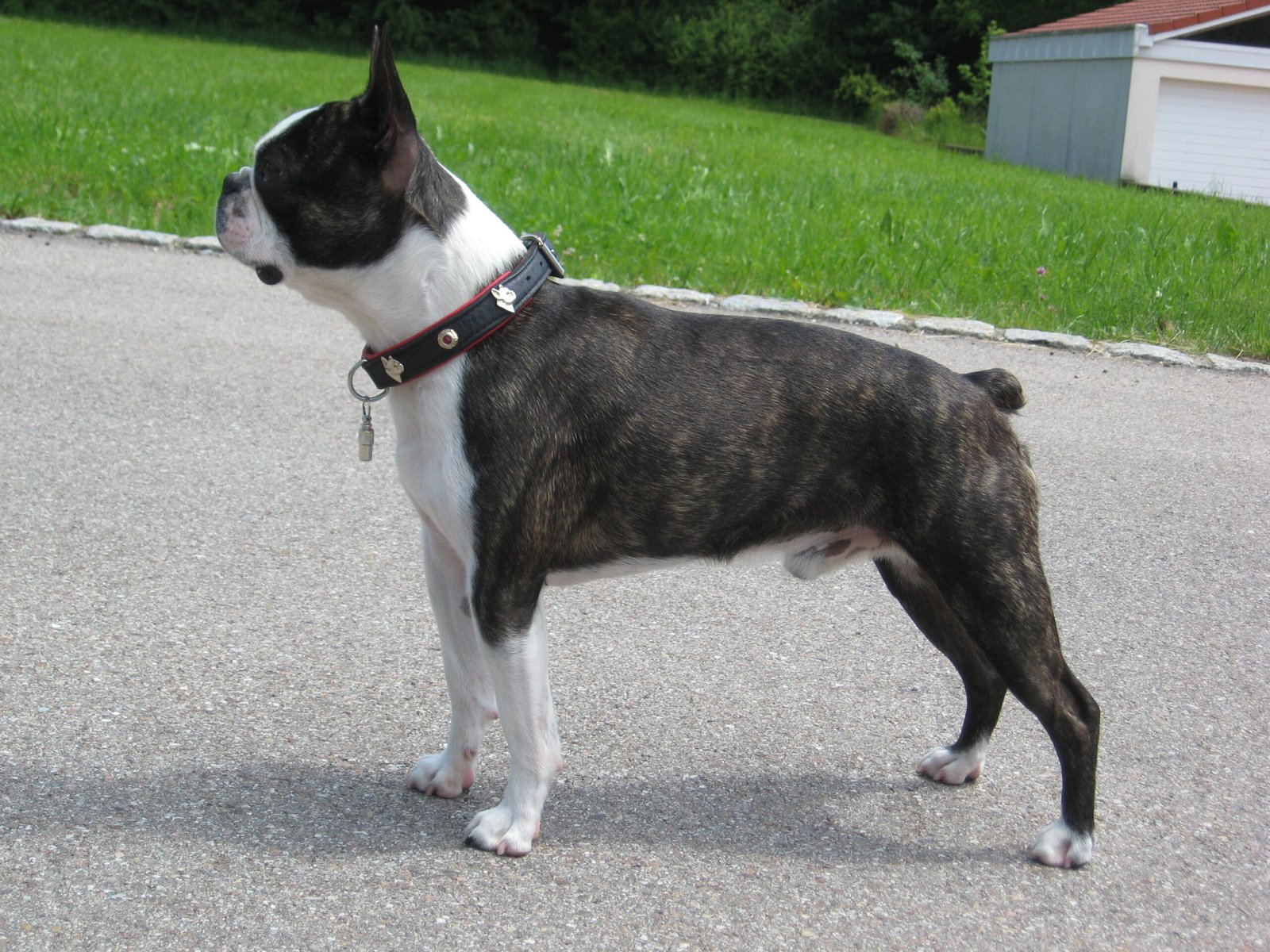Have you ever wondered if your Boston Terrier is truly happy with the way you live? These little dogs have big personalities, and their reactions to your daily habits can be surprisingly revealing. Maybe you’ve noticed your Boston’s eyes light up when you grab your sneakers, or perhaps they sulk when your laptop comes out. The truth is, Boston Terriers are incredibly sensitive to our routines — and they have their own ways of showing pure joy or hidden anxiety. Understanding these signs is not just heartwarming; it can help you build a stronger, happier bond with your beloved companion. Let’s dive into the telltale signs your Boston Terrier adores your lifestyle, as well as the actions that might be stressing them out without you even realizing it.
1. Excitement When You Get Ready for Walks

Boston Terriers are small in size but huge in personality — and when they love the life you’re living, they show it in the most heart-melting ways. These charming, expressive pups quickly become attuned to your habits, routines, and even your moods. But while they’re adaptable and eager to please, certain actions can quietly stress them out without you even realizing it.
If your Boston Terrier starts wiggling their little tail with joy every time you reach for the leash, it’s a clear sign they love your active lifestyle. These dogs thrive on regular exercise and adventure. Their whole body might wiggle, not just their tail, showing their anticipation to explore the world with you. The excitement can start as soon as you put on your walking shoes or grab their harness. This happiness means your routine matches their need for movement and stimulation. If your Boston jumps, spins, or even “talks” to you with happy barks, you’re definitely doing something right. They see your daily walks as special bonding time, and their enthusiasm is their way of saying, “Let’s go, I love this!”
2. Cuddling Up During Your Downtime
When you settle down on the couch after a long day and your Boston Terrier curls up right next to you, it’s more than cuteness—it’s a sign of deep contentment. Boston Terriers are notorious snuggle bugs, and they crave closeness to their favorite humans. If your dog seeks out your lap during movie nights or naps beside you during lazy afternoons, it shows they feel safe and happy with your relaxed moments. This behavior means your downtime aligns perfectly with their need for comfort and affection. They may nuzzle, sigh happily, or even fall asleep in your arms, trusting you completely. A Boston that cuddles is a Boston that feels at home.
3. Bringing You Their Favorite Toys

Does your Boston Terrier trot over with their favorite squeaky toy or chew bone when you’re around? This playful gesture is a genuine sign they love your interactive lifestyle. Boston Terriers are known for their playful spirit and intelligence. When they invite you to join in their games, they’re not just looking for entertainment—they’re showing trust and affection. This sharing of toys is like a child inviting a parent to play. If you often find yourself in tug-of-war battles or tossing toys across the room, your Boston is telling you that your playful energy matches theirs. Their joy in these shared moments is undeniable.
4. Following You Around the House
Ever feel like you have a four-legged shadow? Boston Terriers often follow their favorite people from room to room, eager to be part of everything you do. This loyal behavior shows they enjoy your company so much, they don’t want to miss a single moment. Whether you’re cooking, working, or even just grabbing a snack, your Boston’s presence is a sign of admiration and love. It’s their way of saying, “I want to be where you are.” If your lifestyle allows them to tag along, they’re likely feeling secure and connected.
5. Calm and Relaxed When You’re at Home

A Boston Terrier that lounges peacefully while you’re at home is a happy dog. If your pet stretches out on their bed or quietly chews a toy while you work or relax, it’s a sign of contentment. This calm behavior means your routine doesn’t make them anxious or restless. It shows they trust your presence and feel no need to demand constant attention. When your Boston can settle down while you’re nearby, it means your lifestyle is providing them with just the right amount of stimulation and security.
6. Greeting You With Happy “Zoomies”

There’s nothing quite as hilarious as a Boston Terrier racing around the house in wild circles—otherwise known as “zoomies.” When your pup greets you at the door with these bursts of energy, it’s a heartwarming sign they adore your return. Zoomies are a joyful release of pent-up excitement. They show that your presence is the highlight of their day. If your Boston’s zoomie routine is a regular part of your homecoming, you can be sure they love the rhythm and excitement your lifestyle brings.
7. Showing Off Their Tricks and Training

Boston Terriers are bright and eager to please. If your dog often performs tricks you’ve taught them—without even being asked—it’s a sign they love the mental stimulation you provide. Maybe they sit, spin, or give you a high-five just to see you smile. This behavior means your training sessions are not only enjoyable but also deeply rewarding for them. When your Boston takes pride in showing off, it’s a sign your interactive, engaging lifestyle is just what they crave.
8. Responding Positively to Your Social Activities

Does your Boston Terrier wag their tail and interact happily when guests come over or when you visit friends? Social, outgoing Bostons thrive in environments where they can meet new people and maybe even other pets. If your lifestyle includes regular social gatherings or outings, and your Boston joins in with enthusiasm, it means they’re comfortable and confident. Their positive energy in social settings is a strong sign they feel secure with the way you manage your social life—and that they enjoy being part of your circle.
9. Sleeping Soundly Through the Night

A Boston Terrier that sleeps peacefully through the night, without restlessness or whining, is a sure sign of comfort and happiness. Good sleep is a reflection of a stable, reassuring routine. If your Boston cuddles up in their bed or next to you and drifts off easily, your lifestyle is giving them the sense of security they need. Their steady sleep patterns show they’re not stressed by your habits, late nights, or daily hustle. It’s their quiet way of saying, “I feel safe here.”
10. Eagerly Anticipating Your Routine

Bostons are creatures of habit. If your dog starts getting excited at the same time every day—maybe for a walk, mealtime, or playtime—it’s a sign they love the predictability you provide. You might notice your Boston waiting by the door, staring at the clock, or bringing you their leash exactly when it’s time. This eager anticipation means your routine is perfectly tuned to their needs. It’s their way of showing appreciation for the structure and fun you bring to their life.
11. Ignoring Commands or Acting Out

Now, let’s talk about signs of stress. If your Boston Terrier suddenly starts ignoring your commands or acting out with unwanted behaviors, it could be a silent cry for help. Maybe they’re chewing furniture, barking excessively, or refusing to listen. These actions can be a response to changes in your routine, lack of attention, or an overwhelming environment. It’s important to notice these shifts because your Boston might be telling you they’re not happy with something in your lifestyle.
12. Hiding or Withdrawing From Family Activities
If your once-social Boston begins hiding under the bed or withdrawing from family activities, it’s a red flag. Dogs, especially affectionate breeds like Bostons, usually want to be included in daily life. Withdrawal might signal they feel overwhelmed or stressed by noise, chaos, or constant change. Pay attention if your Boston starts seeking solitude more than usual, as it’s often their way of coping with stress.
13. Excessive Panting or Drooling

Panting and drooling are normal after exercise, but if your Boston Terrier does this excessively while indoors or at rest, it could be a sign of anxiety. Loud environments, unfamiliar visitors, or changes to your schedule might be stressing them out. Watch for this physical sign, especially if it happens without obvious reason. Your Boston’s body language can reveal more than words ever could.
14. Loss of Appetite or Picky Eating
A Boston Terrier that suddenly loses interest in food or becomes a picky eater might be feeling the effects of stress. Changes in your work schedule, frequent travel, or even loud household routines can disrupt their sense of security. Food refusal in dogs often signals emotional discomfort. If your Boston skips meals, it’s worth reflecting on any recent lifestyle changes that could be unsettling them.
15. Persistent Barking or Whining

When your normally quiet Boston Terrier starts barking or whining for no apparent reason, it’s often a way of expressing unease. Maybe you’ve taken on longer work hours, or the household has become busier. Persistent vocalizing can be their way of asking for attention, reassurance, or simply a break from too much stimulation. Listening to these vocal cues is key to understanding their stress levels.
16. Destructive Chewing or Digging
If you come home to shredded pillows or dug-up carpets, your Boston might be acting out due to stress. Destructive behaviors often arise when dogs feel bored, anxious, or neglected. Maybe you’ve been spending less time at home, or your routine has become unpredictable. Your Boston’s actions are a plea for more structure, playtime, or comforting routines.
17. Restlessness or Difficulty Settling Down
A restless Boston Terrier that paces, fidgets, or can’t seem to relax is likely feeling the impact of a stressful lifestyle change. Dogs need periods of calm to recharge. If your home is constantly noisy or your routine keeps shifting, your Boston may struggle to find peace. This restlessness is a clear sign that your lifestyle might be too overwhelming for their sensitive nature.
18. Overreacting to Loud Noises or Sudden Movements
Boston Terriers can be sensitive to their environment. If your dog suddenly jumps or hides in response to loud noises, sudden movements, or raised voices, they could be experiencing stress. A chaotic home, frequent arguments, or even loud music might be unsettling. Notice if your Boston flinches or looks for a quiet escape—these reactions show they need a calmer space.
19. Clinginess or Separation Anxiety When You Leave
Lastly, if your Boston Terrier becomes overly clingy or anxious when you prepare to leave, it’s a sign they’re struggling with your absences. Whining at the door, pacing, or destructive behaviors when left alone can all point to separation anxiety. This stress can be intensified by changes in your work schedule or inconsistent routines. Your Boston craves stability and reassurance, especially when you’re not around.
And that’s how you can tell if your Boston Terrier truly loves your lifestyle—or if something in your daily routine might need a second look. Are you seeing more signs of happiness, or do a few stress signals stand out?

Born and bred in South Africa, a Capetonian at heart. Amy-Leigh’s love for nature and animals was inherited from her Dad. He loves taking the family on road trips to experience nature at its finest; Amy-Leigh’s favourite being whale watching in Hermanus and spotting Kudu along the West Coast. Amy-Leigh holds a BA in English Literature and Communication Studies.






